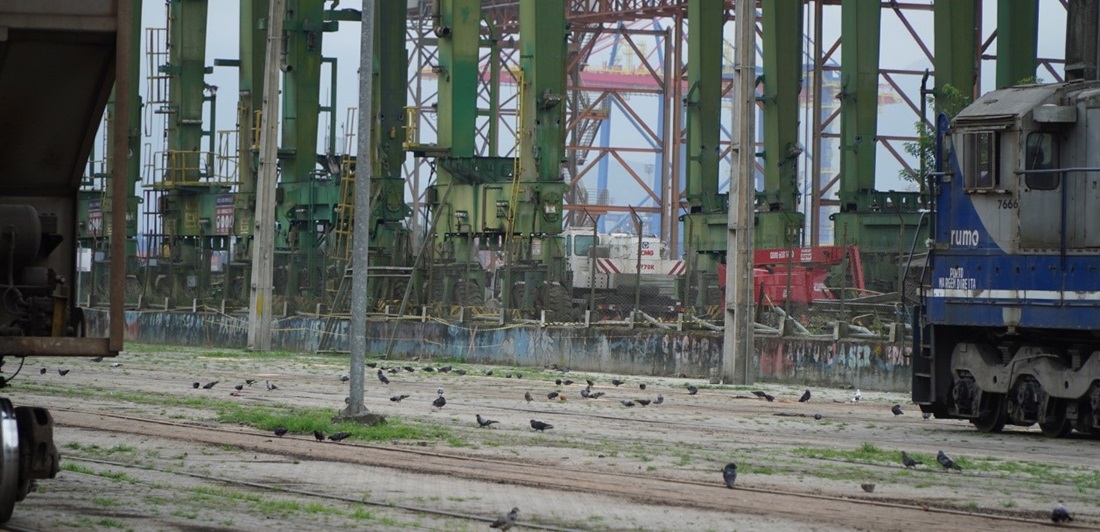
APS completes first stage of pigeon population assessment at Port of Santos
Jan, 29, 2024 Posted by Gabriel MalheirosWeek 202405
The Santos Port Authority (APS) successfully completed the initial phase of a comprehensive assessment of the domestic pigeon (Columba livia) population at the Organized Port of Santos on January 22nd. Engaging the expertise of a biologist and a drone operator from a specialized company, the survey spanned 11 days, meticulously covering the port’s public and leased areas. The primary objectives included conducting a thorough census of the pigeon population and evaluating environmental conditions conducive to feeding, roosting, shelter, and nesting.
The expansive port area was strategically divided into 90 quadrants, each meticulously traversed for data collection. Complementing drone technology, technicians utilized additional tools such as a photographic camera and binoculars to capture detailed images. Collaboration with terminal operators was crucial to the successful execution of the survey.
Moving forward, the project will transition to the development of a comprehensive technical report detailing the findings and services rendered. This report will encompass critical aspects such as the average pigeon population and density per region, the identification of key areas used by the birds for landing, nesting, and feeding, as well as the identification of operational non-conformities. The report will also propose pragmatic suggestions for improvement. Non-conformities identified during the assessment will be promptly communicated to relevant stakeholders, including terminal operators, to facilitate the implementation of corrective actions.
A follow-up campaign is scheduled approximately six months from now, with ten campaigns planned throughout the five-year contract. This iterative approach underscores the commitment to implementing sustainable and effective mitigating measures to prevent diseases and preserve the port’s environmental wellness.
The APS initiated this thorough assessment due to the recognized role of domestic pigeons as carriers of various pathogens with significant implications for public health. Additionally, the droppings of these birds can pose operational challenges, potentially clogging gutters, causing damage to facilities, and contaminating goods being handled within the port.
-
Trade Regulations
May, 17, 2021
0
Brazil wants to cut Common External Tariff by 20%, with or without Argentina
-
Blog News (ENG)
Oct, 06, 2022
0
Brazil’s growers target Middle East, China as potential fruit-buying markets
-
Nov, 24, 2021
0
Hyundai Heavy to establish first technical guide for green hydrogen plants at sea
-
Ports and Terminals
Jun, 29, 2021
0
Ceará Government signs MoU to install a generator factory in the Pecém Complex


